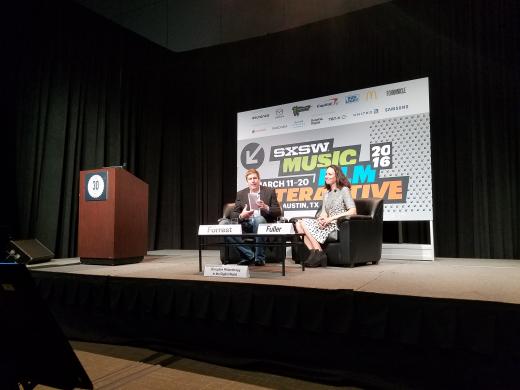[ad_1]
This year at SxSW, I kicked things off by attending a great talk with the director of Google.org, Jacquelline Fuller. She had a conversation with Hugh Forrest, and started by letting us know that to her Austin feels like a “Googley” city where everyone is very friendly.
Their conversation focused on a topic that is near and dear to the open source community: diversity in tech. Google’s workplace is 70% male, so hiring more women and minorities interested in technology is a big issue for them. They know that they will create better products if they have a more diverse team. And, Jacquelline says we’re seeing that companies founded by women are not getting the same results to support their businesses when pitching to venture capitalists. Men are 18% more likely to get funding with the same exact pitch as a woman.
Also, in the field of computer science we’re losing women, either from the beginning when women choose a major in college or somewhere along the way because they don’t feel supported in their career. We can all do something to help. One thing is to focus on teaching tools and projects that focus on finding solutions to world problems, instead of role playing games. (Personally, I have started a chapter of ChickTech in Austin!)
The first step is to acknowledge we have an issue.

Google employees took an unconscious bias test, and Jacquelline recommends that we all take one. (There are many online.) Google found that most of their employees have a moderate to strong bias around the topic of women in the tech/business workplace. After taking the test herself, Jacquelline found she too has a strong bias there. (Get your team to take this test as great way to start the conversation around this important issue!) So, Google is implementing something called blind code interviews where just only the code is viewed by the hiring manager in the initial phase.
Another thing to consider is the Elephant in the Valley study. It shows women can be considered a strong leader without being seen as aggressively strong (which is something that can make both men and women uncomfortable).
Finally, this is not an issue that should only be talked about, cared about, and solved by women. At ChickTech, we encourage a diverse group of mentors and teachers to attend our high school program so that the girls in attendance can hear from and see that diversity is what is normal.
[ad_2]
Source link